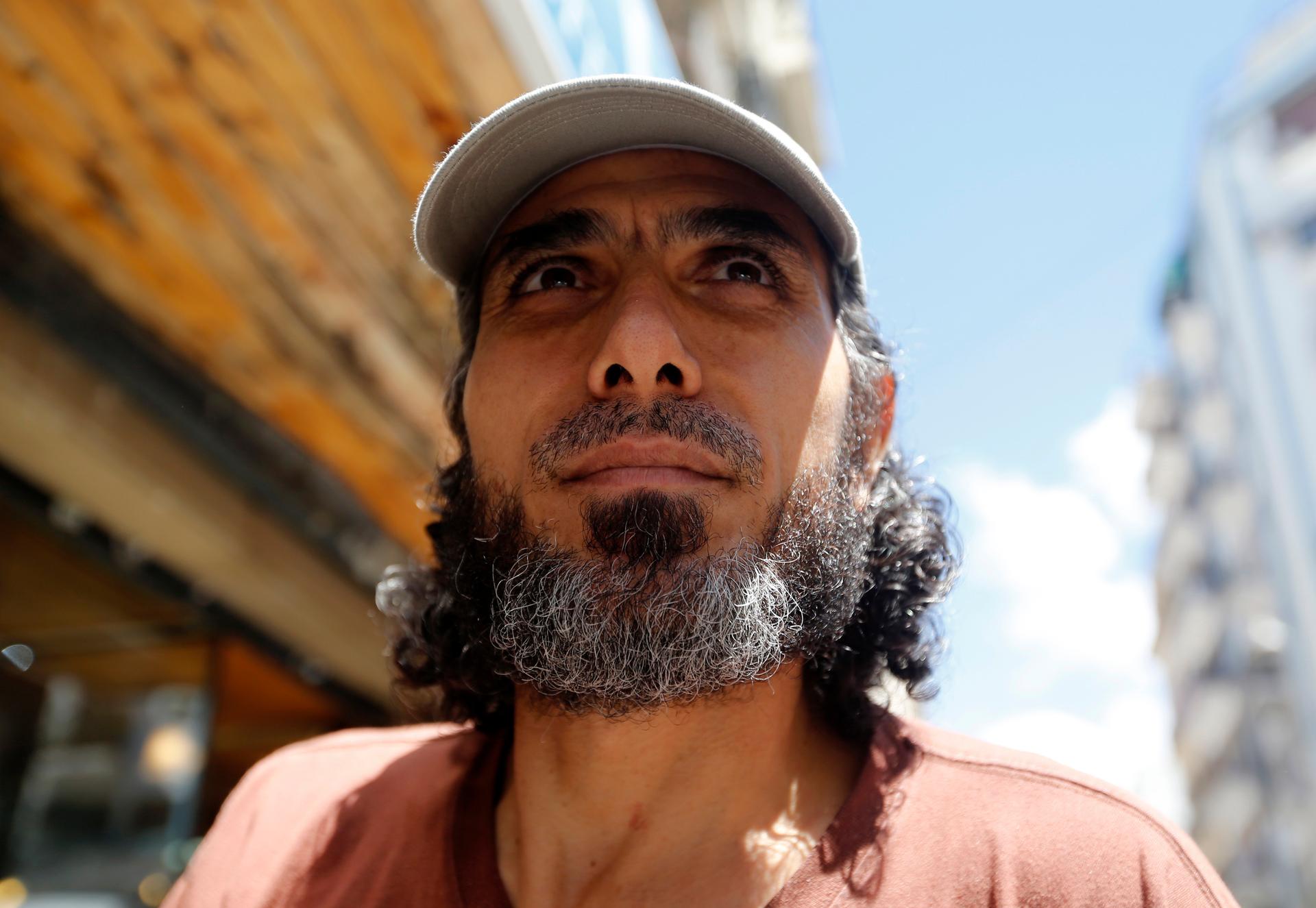Uruguay has ‘no idea’ where this former Guantánamo detainee is
Former Guantánamo Bay detainee Abu Wa'el Dhiab looks on as he arrives for an interview in Buenos Aires on Feb. 13, 2015.
A former detainee at Guantánamo Bay has reportedly disappeared from his new home in Uruguay, where he settled in 2014.
A spokesman from Uruguay's Interior Ministry said on Wednesday the authorities had “no idea whatsoever” where Abu Wa’el Dhiab was. The United States did not seem to know, either.
“We are aware of reports that Mr. Deyab may have traveled from Uruguay to Brazil,” a US State Department spokesperson wrote in an email on Thursday, using one of several spellings that refer to the former detainee. “We remain in close contact with our partners, Brazil and Uruguay, on this matter,” the State Department said.
This is the latest development to raise concerns that officials are losing track of the people the United States has transferred to countries around the world after detaining them, but never charging them, for suspected terrorism.
Brazilian and Uruguayan media are reporting that Dhiab may have crossed the border to Brazil. And The Washington Post, citing unnamed sources, also reports that law enforcement officials from the two South American countries and the US are searching for the former inmate.
Uruguay would allow Dhiab to travel to other countries, but, the Post reported, officials suspect he may have entered Brazil without that country's permission.
Reached by phone, Uruguayan Interior Ministry spokesman Fernando Gil told PRI that Dhiab “is a person with freedom of movement in Uruguay, but he hasn’t crossed the border formally.”
Gil elaborated: “He may have crossed by land, but he hasn’t gone through the immigration process.”
Dhiab has left Uruguay before. Last year, he traveled to Buenos Aires, where he sat for a televised interview with Argentinian and Uruguayan journalists.
He certainly wouldn’t be the first person to quietly leave the country that took him in after being imprisoned at the notorious US detention facility. In 2013, two former Guantánamo detainees slipped out of El Salvador, where they had been placed in 2012.
Dhiab is one of six freed prisoners brought to Uruguay in December 2014 as part of a deal made between the US and then-President of Uruguay José Mujica. At the time of the transfer, Mujica, a former political prisoner himself, said the men would be free to leave Uruguay if they wished. Uruguayan Interior Minister Eduardo Bonomi has repeated this position.
Earlier this year, Dhiab said in an interview that while he never supported al-Qaeda before his arrest, his 13 years imprisoned by the US in Cuba changed his mind. "I never had anything to do with al-Qaeda, but after the abuse I received, now I like al-Qaeda,” Dhiab told Uruguay's Búsqueda magazine.
The former Guantánamo detainees in Uruguay have had a rough time.
After they failed to quickly land jobs, the men were criticized by their onetime supporter Mujica. Some of the men went on hunger strike outside the US Embassy in Montevideo demanding more assistance. Two of the men married local Uruguayan women who had converted to Islam. Within a year, both men had been arrested and charged with domestic violence and both marriages have now failed.
Read more: What happened after Guantanamo for these ex-detainees? It wasn't pretty.
Every day, reporters and producers at The World are hard at work bringing you human-centered news from across the globe. But we can’t do it without you. We need your support to ensure we can continue this work for another year.
Make a gift today, and you’ll help us unlock a matching gift of $67,000!
